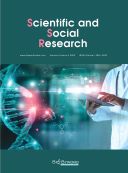Abstract
With the development of China’s economy, there have been new changes in various industries, resulting in a continuous increase in consumption levels, which also negatively impacted development of China’s economy. Whether it is the consumption of primary, secondary, or tertiary industries, or essential goods or luxury goods. The consumption intensity has skyrocketed especially after the end of the pandemic, and many people have a great desire for consumption, gradually leading to the phenomenon of consumption addiction. The consumers’ attitude affects their behavior, and some young people still have the problem of excessive or blind consumption. This article provides a detailed analysis of excessive consumption among some young people from the perspective of behavioral economy, with the goal of solving consumption issues and providing some consumption suggestions to relevant personnel.
References
Zheng Y, Fan X, 2011, The Social Psychological Motivation and Management Implications of Proud Buying Behavior: A Multi perspective Analysis Based on Chinese Cultural Background. Journal of Beijing Business University: Social Sciences Edition, 2011(3): 7–11.
Liu S, Zhang N, Liang Q, 2010, Intergenerational Inheritance and Evolution of Chinese Consumer Cultural Values: An Empirical Study Based on Mainstream Consumer Groups in China. Journal of Shenzhen University: Humanities and Social Sciences Edition, 2010(6): 77–84.
Jiang L, Gong X, Lu J, et al., 2016, A study on the Impact of Consumer Expectations on Residents’ Willingness to Consume: The Mediating Effect of Psychological Account Flexibility. Consumer Economy, 32(4): 54–60.
Han Z, Qiao Y, Shao X, 2019, Effectiveness Analysis of CAPM Series Models: A Comparative Analysis Based on Industry Data in the Shanghai, Shenzhen, and Hong Kong Stock Markets. Investment Research, 2019(10): 115–132.
Li J, Zhang P, Zhang Z, 2019, From “Economic Man” to “Social Man”: The Impact of the Rise of Behavioral Economics on Urban Planning in China. Research on Urban Development, 26(4): 31–36.
Lin M, Cai X, 2016, Research on the Hypothesis of Rational “Economic Man” and the Political Economy of Socialism with Chinese Characteristics. Fujian Forum: Humanities and Social Sciences Edition, 2016(5): 13–21.
Wang Z, Guo X, Li H, 2017, Will the Process of Regional Marketization Promote Local Governments to Choose PPP Mode Financing —— Empirical Research Based on Infrastructure. Financial Research, 2017(10): 54–64.
Bai C, Wang S, Ma W, 2010, Research on Cognitive Bias of Sports Lottery Consumers from the Perspective of Behavioral Economics. Journal of Nanjing Institute of Physical Education: Social Science Edition, 24(3): 119–123.
